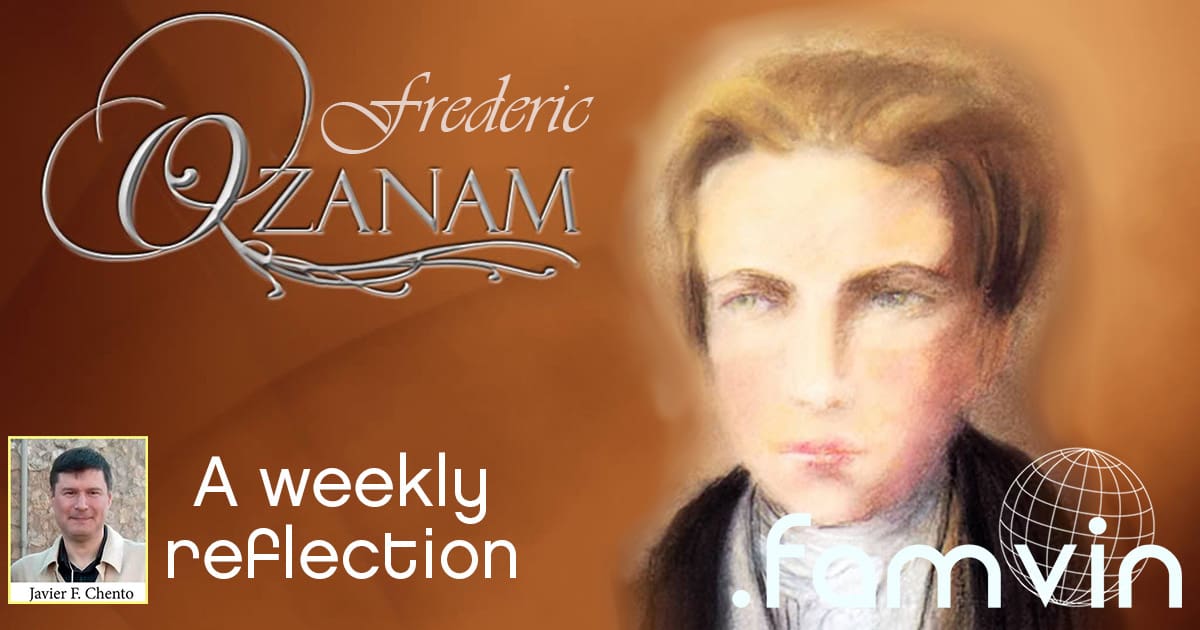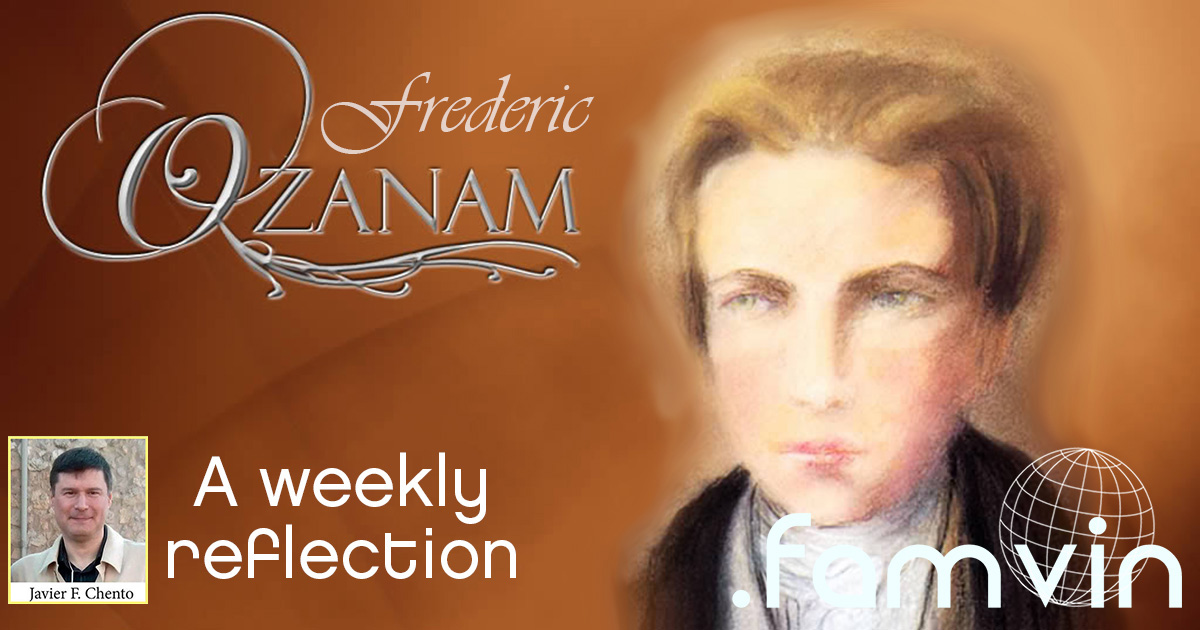Working Tirelessly for the Impoverished • A Weekly Reflection with Ozanam
Representatives of the people,
Do not say that you lack time. Under the shootings of the insurrection, the National Assembly asked the night for the hours denied by the day. I saw you on all the barricades, haranguing the factious, encouraging the defenders of order, and history will not forget neither those of you who lost their lives, nor those who saved the lives of their fellow citizens. Why are you not seen where the dangers of the present time are? Why should not you deny your mornings to the applicants who are disputing you to visit those disinherited quarters, to climb those dark stairs, to penetrate those bare rooms, to see with your own eyes how your brothers are suffering, to know their needs, to let in those poor people the memory of a visit that honors and consoles their misfortune, and finally come down again penetrated by an emotion that can no longer stand waiting, that will put fire on your lips and shudder in the Assembly, who will force it, if neccesary, to make a enduring declaration, and not to leave without having conquered misery, as in the memorable night of June 24, when it overcame the revolt?

Frederic Ozanam, article «Aux gens de bien» [To good people], in L’Ère Nouvelle, nº 151, September 15, 1848.
Reflection:
- We continue reflecting on the article “Aux gens de bien” [To people of good], published in the newspaper L’Ere Nouvelle in September, 1848. In it, Frederic addresses several social classes (as we have already seen to the rich, to priests and to politicians in this text and in this one) so that they may strive to solve the problems of the poor.
- Frederic accuses the representatives of the people, in this text, of a certain apathy or disinterest in the problems of the poor, of not traveling through the poor neighborhoods and seeing with their own eyes “how your brothers are suffering, to know their needs.” Ozanam is convinced that the visit to the poor transforms the heart of the one who performs it, in such a way that he firmly believes that, if they do, they would return “penetrated by an emotion that can no longer stand waiting, that will put fire on your lips and shudder in the Assembly.”
- Also at present, we can think that, in many cases, our politicians live far from the social reality that lives the immense majority of the people. A certain occasion comes to my mind, some time ago, when several politicians were asked about the price of a coffee in a cafeteria: none of them could say what the usual price was for it. An anecdote, without a doubt, but that somehow reflects what is a broad feeling among citizens: many times, politicians live far from the problems and realities common to society.
- In our Vincentian Family we can run a similar danger: talk a lot about the poor, without knowing them. Schedule big plans for the help of the needy, without having set foot in their homes, in their neighborhoods, without having put (metaphorically) “finger and hand in their wounds” (as Ozanam told his friend Louis Jamnot). Even worse: that we call ourselves followers of St. Vincent de Paul without this, in any way, transforming our way of life, our way of understanding existence.
- The needs of the poor are many: living them from experience calls us to a deep conversion, invites us to change our eyes and to work tirelessly for them, as St. Vincent said, “like someone who runs to put out a fire.”
Questions for dialogue:
- Do we know the reality of the poor who live around us? Have we experienced their suffering, known their anguish, visited their homes?
- As Vincentians, what response can we give to the pain of our brothers in need who live in our environment?
- Are we in the “conflict” places, where our word and our effort are needed to solve the problems?
Javier F. Chento
![]() @javierchento
@javierchento
![]() JavierChento
JavierChento










0 Comments